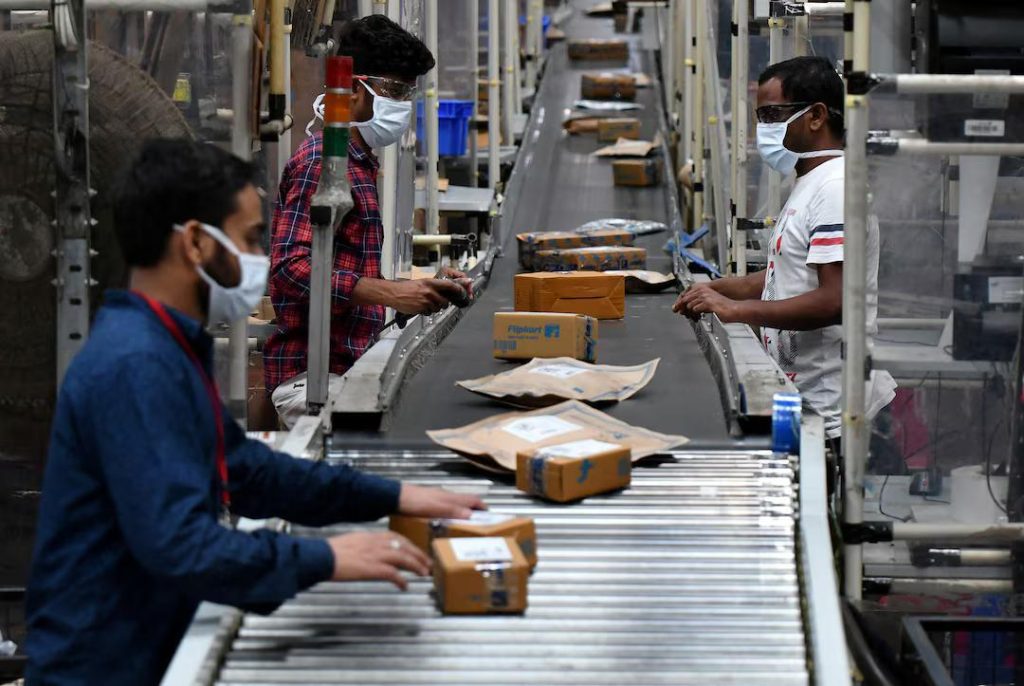
7,200 Complaints Against E-commerce Firms in 2025 for Selling Fake Goods
The National Consumer Helpline has received a staggering 7,200 complaints against e-commerce firms and platforms in the first half of 2025 for selling spurious, fake, and duplicate products. This marks a significant 44% increase from the entire year of 2024, which saw 4,997 such complaints. The alarming rise in complaints highlights the need for stricter regulations and monitoring of e-commerce companies to ensure that consumers receive genuine products.
The National Consumer Helpline, a government-backed initiative, provides a platform for consumers to register their grievances and seek redressal. The latest figures reveal that e-commerce firms are facing the wrath of consumers for selling substandard products, which not only harm the reputation of these companies but also erode consumer trust in the entire industry.
The Bureau of Indian Standards (BIS) has taken cognizance of the issue and has carried out 22 search and seizure operations at e-commerce firms’ warehouses in the current financial year. These operations aim to identify and confiscate counterfeit products, which are often sold as genuine goods. The BIS is working closely with the Department of Consumer Affairs and the e-commerce industry to ensure compliance with quality and safety standards.
The surge in complaints can be attributed to the rapid growth of the e-commerce sector in India. With more and more consumers opting for online shopping, the demand for products has increased significantly. However, this growth has also given rise to the problem of fake goods, which can pose serious health and safety risks to consumers.
The e-commerce industry has been growing at a compounded annual growth rate (CAGR) of 20% over the past few years. This has led to increased competition among players, which can sometimes result in cutting corners and compromising on quality. The lack of transparency and accountability in the supply chain can also lead to the sale of fake goods.
The impact of fake goods on consumers is severe. Not only do they receive substandard products, but they also risk their health and safety. Counterfeit products can be made with inferior materials, which can cause harm when used. Moreover, they can also be designed to malfunction or explode, causing serious injuries or even fatalities.
The e-commerce industry has a crucial role to play in addressing this issue. Companies must ensure that they have robust quality control measures in place to detect and prevent the sale of fake goods. They must also work closely with suppliers and manufacturers to ensure that products meet quality and safety standards.
In addition, consumers must also play their part in addressing this issue. They must be aware of the risks associated with buying fake goods and take necessary precautions to avoid falling prey to such scams. They must also report any instances of fake goods to the authorities and the e-commerce companies.
The government also has a critical role to play in addressing this issue. It must ensure that the e-commerce industry is regulated effectively to prevent the sale of fake goods. The government must also provide adequate resources and support to the BIS and other regulatory bodies to enable them to carry out their duties effectively.
In conclusion, the 7,200 complaints against e-commerce firms in 2025 for selling fake goods is a wake-up call for the industry. It highlights the need for greater vigilance and accountability to ensure that consumers receive genuine products. The e-commerce industry must work closely with regulatory bodies and consumers to address this issue and maintain the trust of consumers.






